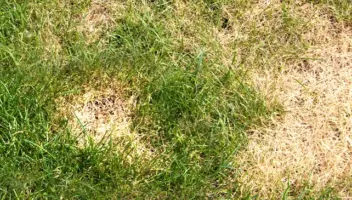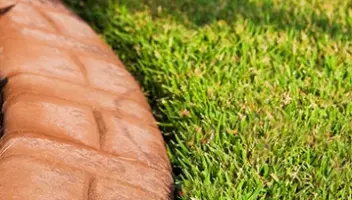Weed Control 101

Weeds can be pesky intruders and a serious garden problem. They rob vegetable plants of sunlight, water and nutrients and provide a hiding place for insects.
Even though weeds can be maddening and a headache to deal with, there are some ways to keep them under control. However, it’s important to take action while weeds are small before they get out of control. If you are looking to get a healthier garden, and your lawn care under control, read on for our top tips.
Cultivation
Cultivation is the most common method of weed control. This method of lawn care is not a one-time chore. Instead, it involves continuous action, irrigating and stirring the soil after each rain.
A variety of tools are used for cultivation, but the most common types are a hoe and garden tiller. A sharpened hoe blade is great for cutting the roots of the weeds. A garden tiller is a soil-disturbing tool used to cultivate the soil and kill the weeds.
Weed Killer
Herbicides, or weed killer, are a common choice among gardeners. While commercial vegetable growers have a wide choice of chemical weed killers, gardeners have a much smaller choice of herbicides.
It’s important to realize that not one single herbicide will control all weeds. And, some vegetables are also sensitive to herbicides. This could be an issue because if the wrong weed killer is used, the vegetable could be injured.
Before using a herbicide in your garden, read the product label for a listing of vegetables it can be used on. Also, take into considering the recommended rate of application and the method of application. Here are some of the top weed killers and how they can be used:
- Dacthal: Several brand names use Dacathal. This herbicide can be used on a wide variety of vegetable plants. It is great for controlling most grasses and a few broadleaf weeds. This specific type of herbicide controls weeds as their seeds germinate. Therefore, remember to remove existing weed plants before applying Dacthal.
- Trifluralin: Trifluralin is a preemergence herbicide, working to prevent weeds from growing. For the most effective herbicide, mix trifluralin with garden soil. Read the package label for a list of approved vegetables to see if it will work with your garden.
- Glyphosate: Most applications of glyphosate are for eliminating existing weed problems before vegetable seeds emerge.
Aerating: When and How
Aerating is extremely important for lawn care. It involves perforating the soil with small holes to allow air, water, and nutrients to penetrate the grass roots. This helps roots grow deeply and strong to give you that enviable green lawn. And, it helps control weeds for a healthier lawn.
The best time to aerate is during the growing season. Ideally, you’ll want to aerate the lawn with cool season grass in the early spring or fall. If you have warm season grass, the best time to aerate is in the late spring.
Mulching
Don’t give weeds the chance to see the light! Mulch works to keep the soil cool and moist, depriving weeds of light. Plus, organic mulches can host tiny organisms and crickets that actually seek out weeds and devour the weed seeds.
It’s important to replenish the mulch as needed to keep it about 2 inches deep. You can also set weeds way back by covering the soil’s surface with light-blocking sheet of cardboard or newspaper and then spread the mulch over it.
Mind the Gaps
Close plant spacing chokes out emerging weeds by shading the soil between plants. Therefore, when designing you garden, keep plants close together, rather than widely scattered. When considering the recommended planting distance, you can usually shave off about 25% of the recommended spacing.
Water the Plants You Want
Deprive weeds of water to get a greener, more luscious lawn. One way to do this is to place drip or soaker hoses beneath your mulch to irrigate plants while leaving nearby weeds deprived.
Depriving weeds of water can be an effective solution to reducing weed-seed germination by 50 to 70%. Keep in mind though, deeply rooted perennial weeds, like bindweed and nutsedge, could become an issue. Keep your eye on these type of weeds and kill them before they become a larger problem.
By mulching, aerating, and cultivating your soil, you can have a beautiful garden that is free of weeds. What other tips have you found effective for eliminating weeds in your garden? Leave us a comment below!


